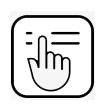
Everyone gets the blues from time to time, but when normal sadness deepens into something long-term and all-consuming, depression may be present. Symptoms of depression include:
Fatigue
Isolation
Suicidal Thoughts
Appetite Loss
Social Withdrawal
Anger or Irritability
Restlessness

Depression Therapy for Major Depressive Disorder (MDD)
MDD or Clinical depression manifests as an ongoing low mood disorder often accompanied by low self-esteem and losing interest or enjoyment in activities that a person used to find pleasurable. Further symptoms include:

Depression Treatment for Persistent Depressive Disorder (PDD)
Persistent Depressive Disorder is a state of chronic depression in which people may experience extreme sadness and hopelessness almost every day & for a long duration. Symptoms include:

Depression Therapy for Seasonal Affective Disorder (SAD)
Seasonal Affective Disorder is a major depressive disorder with a seasonal pattern. It begins around late fall or early winter and stops in the spring. However, it’s possible to encounter symptoms at other times of the year. Symptoms include:

Depression Treatment for Perinatal and Postpartum Depression
Due to hormonal fluctuations, perinatal depression can happen during pregnancy and up to one year after delivering a baby. Symptoms go beyond Postpartum blues which cause sorrow, anxiety, or stress, and can include:

Depression Therapy for Substance-Induced Mood Disorder (SIMD)
Substance-induced mood disorder is a shift in how you feel, judge, or act, caused by taking or stopping a drug. These shifts in your mood can last days or weeks, leading to disruptive social behavior. Symptoms include:
Reclaim your life with the right approach and depression treatment. Our depression therapists help you stay motivated to create a fulfilling life.


855-722-4422

“Remember that feelings of helplessness and hopelessness are symptoms of depression—not the reality of your situation.”

- Unknown
Start feeling better today with depression therapy. Our licensed therapists will meet you where you're at and help you along your journey.

Search Your Therapist

Check Your Insurance

Schedule Your Session

Find the right depression therapist for you and get a custom care plan that fits your needs. Our experts will help figure out what's causing your depression and guide you toward feeling better.
Professional online depression therapy can help people struggling with depression manage their symptoms and live a happier life again. Our skilled therapists assist you in regaining healthy feelings & gain the upper hand over depression.

Our Therapists | Insurance | Services Offered | Privacy
Prolonged sadness and loss of interest are symptoms of depression, a mood illness. Clinical depression, also known as major depressive disorder, affects how you feel, think, and behave and can cause several emotional and physical issues. You can find it difficult to carry out your regular daily tasks, and you might occasionally think life isn't worth living. If you or you loved ones are going through severe depression disorder symptoms then reach out to us for depression treatment. Our licensed and experienced depression therapist can help you or your loved one with best depression therapy near you.
Reach out to us for depression treatment if you are experiencing any of the below symptoms. Our licensed and experienced depression therapist can help you or your loved one with best depression therapy near you.
Problems with memory, concentration, decision-making, and thought. If you have been experiencing any of the symptoms above, its now time to look for help, you can reach out to us simply by searching ‘best therapist for depression near me’ or ‘therapist near me for depression’ or call us to book an appointment for depression treatment with our best depression therapist.
Many things can lead to depression, including:
If you or you loved ones are going through severe depression disorder symptoms then reach out to us for depression treatment. Our licensed and experienced depression therapist can help you or your loved one with best depression therapy near you.
Healthcare professionals classify different types of depression based on symptoms and causes, which can often be elusive. These conditions may persist longer in some individuals without apparent reasons. Various forms of depression that depression treatment can address include:
1. Major Depressive Disorder (MDD): Also known as clinical depression, MDD involves severe symptoms lasting more than two weeks, significantly impacting daily life.
2. Persistent Depressive Disorder (PDD): Also called dysthymia, PDD features milder symptoms compared to major depression but may persist for up to two years.
3. Premenstrual Dysphoric Disorder (PMDD): PMDD, a severe form of premenstrual syndrome (PMS), affects women in the days or weeks before their menstrual period.
4. Bipolar Depression: Individuals with bipolar disorder experience alternating periods of high-energy (manic) phases and low mood, often exhibiting depressive symptoms such as sadness, hopelessness, or lack of energy.
5. Psychotic Depression: This type involves significant depressive symptoms along with hallucinations or delusions, where individuals may see, hear, or believe things that aren't real.
6. Seasonal Affective Disorder (SAD): SAD, also known as seasonal depression, typically arises in late fall or early winter and subsides in spring or summer.
7. Perinatal and Postpartum Depression: Depression during pregnancy and after childbirth is termed perinatal depression, with postpartum depression being a common subtype. Perinatal depression can occur during pregnancy or up to a year postpartum.
If you or a loved one are experiencing any of these severe depression disorders, seek depression treatment. Our licensed and experienced depression therapists can provide the best depression therapy near you. You can find us online by searching for "anxiety and depression therapist near me," "best therapist for depression near me," "best therapy for anxiety and depression," "depression clinics near me," "depression clinic in New Jersey," "depression center in Virginia," "depression centers near me," or "online depression therapy near me."
Lifebulb depression therapist and counselors specialized in providing in-person or online depression therapy, depression counseling, care, and depression treatment for a wide variety of mental healthcare needs and issues, including, but not limited to, anxiety, depression, grief & loss, trauma, PTSD, couples counseling, marriage counseling, life transitions, adjustment disorders, bipolar, schizophrenia, eating disorders, child counseling, teen and adolescent therapy, anger management, career coaching, life coaching, ADHD treatment, family therapy, panic or depression attack, phobias, substance abuse, virtual therapy, online counseling, EMDR, EFT, and many more.
Your first session with a Lifebulb depression therapist or counselor won't simply be a background or demographic information-gathering session - We know deciding to get help is a big deal and a difficult step. That's why our first offline depression therapy or online depression therapy session with you will be about providing you with the service you're seeking and proving that the depression treatment process can work with the right effort and commitment from both sides.
We accept many major commercial insurance plans, including Blue Cross Blue Shield, Aetna, Cigna, United Healthcare, Tricare, Medicare, and others. If you don't see your insurance listed, we would be happy to verify your benefits to see if we can accept them, and if not, we offer you an affordable self-pay rate for depression therapy/counseling.
While many practices accept only self-pay clients or out-of-network benefits, at Lifebulb, we aim to keep your costs low by accepting most major insurance plans. Often the out-of-pocket expense per online depression therapy session is a low copay determined by your specific insurance provider and plan. We also offer a self-pay rate lower than many practices for those without insurance or simply preferring not to use their healthcare benefits for in-person or virtual depression therapy.
Depression therapist who don't enjoy their workplace are often, unfortunately, unable to provide their clients with the best possible level of counseling and depression therapy. That's why at Lifebulb, our depression therapist are our top priority. This means that your counselor or therapist can provide you, their client, with the best treatments for depression disorder because they enjoy the work they do in session with you, where they work, and who they work with.
At Lifebulb, our biggest difference lies in our therapists. Many practices, large and small, often put growing businesses before growing people. It may sound simple, but at Lifebulb, we treat our therapists like valuable people that provide a valuable service. What does that mean for our clients? While we believe therapists and counselors, regardless of where they work, do their best for their clients, we've found that therapists who genuinely enjoy where they work are able to provide the best therapy for depression disorder to those they help. To that end, our primary goal at Lifebulb is to provide our therapists with the best possible environment in which to operate. In doing so, we believe Lifebulb clients are best positioned to accomplish their treatments for depression disorder goals through in-person counseling or virtual therapy treatment for depression. You can always find us by simply searching online-”anxiety and depression therapist near me” or “best therapist for depression near me” or “best therapy for anxiety and depression” or “depression clinics near me” or “depression clinic in New Jersey” or “depression center in Virginia” or “depression centers near me” or “online depression therapy Near me”
Read our comprehensive list of resources on depression & get the help you seek.